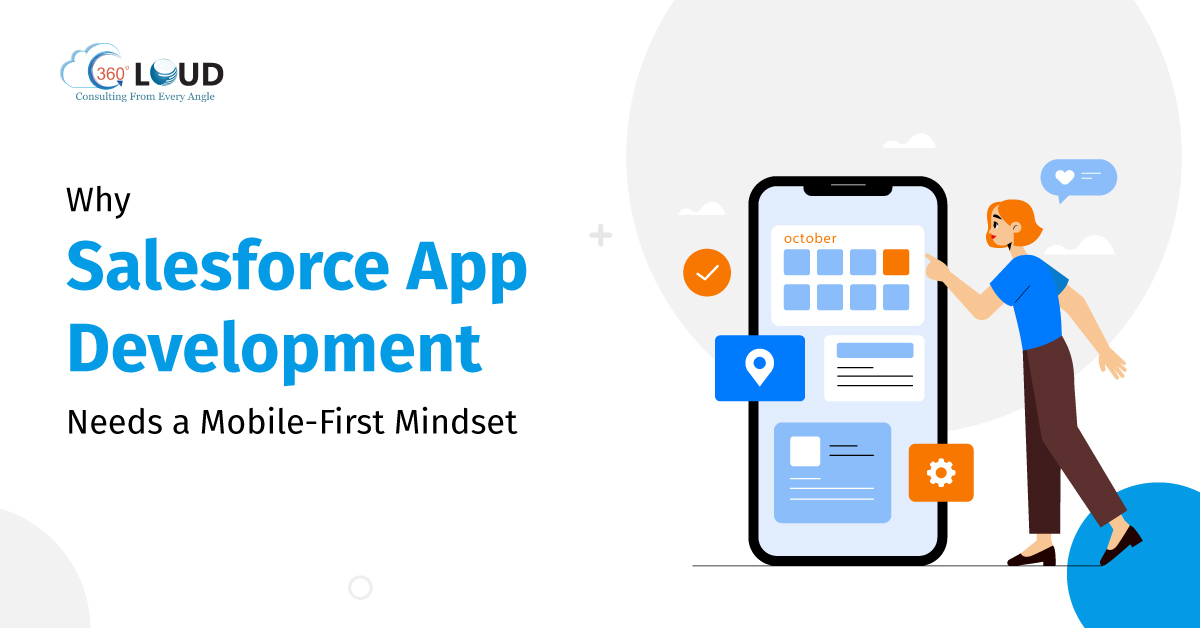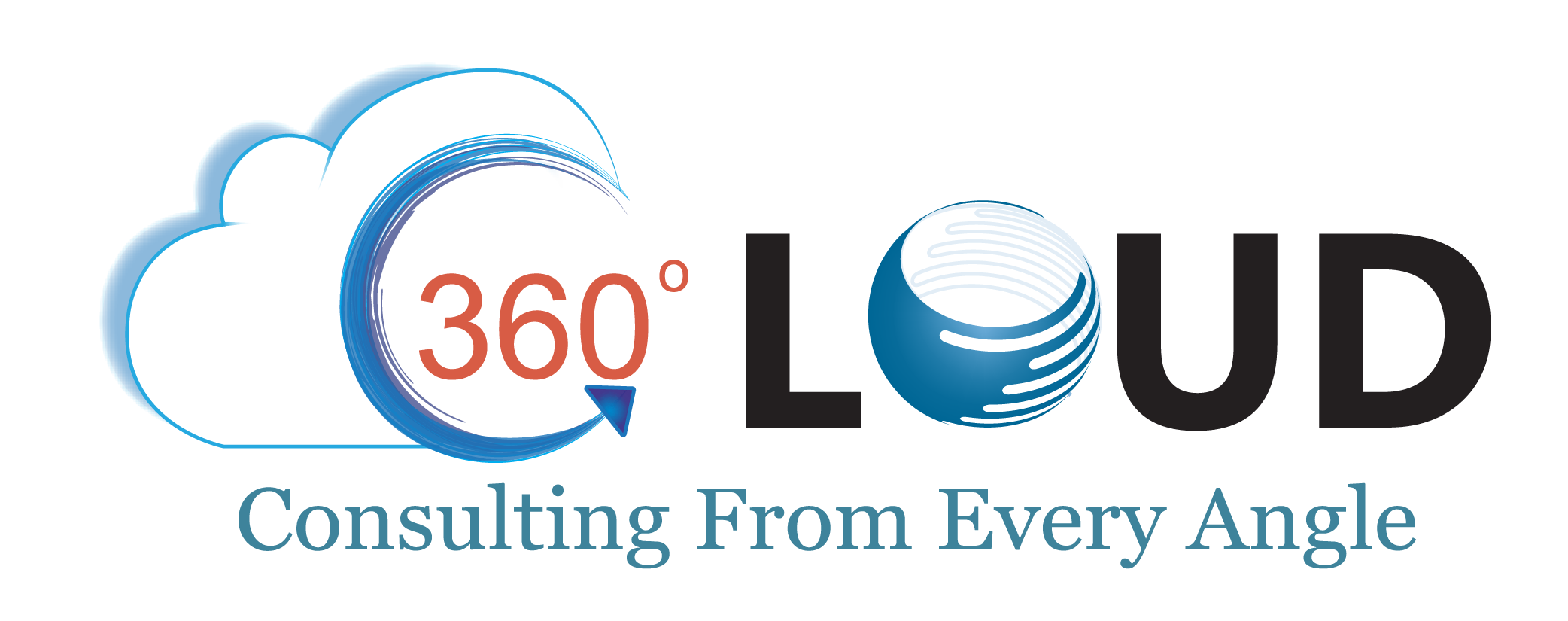Why Salesforce App Development Needs a Mobile-First Mindset
15 May 2025
Table of Contents

If you are sending or receiving a payment, checking the weather, or doing shopping online, there is a strong chance that you are using a mobile application. In fact, people spend 88% of their time on mobile, and there were approximately 288 billion mobile app downloads worldwide, with worldwide spending on mobile apps reaching $171 billion in 2023, as per Statista. The numbers are speaking for themselves. Aren’t they? And to make the most out of this opportunity, you need to focus on the mobile-first approach. Also, sales reps, field service engineers, and savvy customers demand immediate, intelligent, and intuitive mobile experiences. And with the rapid use of AI, offline workflows, and AppExchange ranking algorithms that now support mobile optimization, ISVs and Salesforce consultants must rewire their Salesforce app development services approach.
Table of Contents
Why a Mobile-First Mindset Is Crucial in 2025
We live in an era where everyone is on the go, and they take actions on the move. And the mobile is the first touchpoint for it, be it updating records or approving deals. Here’s why a mobile-first approach is important for Salesforce mobile app development.
1. Field-Driven Use Cases Are Increasing
Mobile has become the key interface for customer-facing roles, for example, salespeople closing deals on-site and technicians updating job statuses in remote areas. The field-driven use cases are especially rising in industries like logistics, manufacturing, healthcare, and energy. It is challenging for these users to tolerate laggy load times and desktop-dependent features. Therefore, you need to show your A-game in your Salesforce AppExchange app development.
2. AI-Powered Alerts Require Quick Response
Real-time insights are as good as the real-time action you take on them. Salesforce’s growing suite of AI-driven tools, like Einstein and Agentforce, generates timely alerts that need immediate action. A delay caused by poor UI or an inaccessible action path can cost you revenue and, worst of all, customers.
3. Offline Access Isn’t Optional Anymore
You cannot always stay connected, and assuming the same is not safe. This can be due to multiple reasons, like compliance policies, unstable connectivity, and rural deployments. Therefore, while offering Salesforce mobile app development services, it is key to make the most out of Salesforce’s mobile SDKs and offline storage mechanisms. It will ensure that your app works smoothly in offline mode, with intelligent sync logic and user-friendly error handling.
4. AppExchange Rankings Require Mobile Optimization
AppExchange gives utmost importance to mobile-optimized apps in both visibility and performance scoring. With the mobile-first approach starting to influence your listing’s relevance, poor mobile user experience can negatively impact your app discoverability. Therefore, it becomes a necessity to make your Salesforce app development approach mobile-first in a crowded marketplace.
5. Integrations Must Work Natively on Mobile
In 2025, it would be a sin for developers to forget to test how integrations behave in a mobile context because APIs and third-party tools are part of every modern app stack. For example, a seamlessly integrated payment system on desktop can fall apart easily on mobile if it is not optimized.
Now that we’ve talked about the importance of a mobile-first mindset for Salesforce app development services, let’s shift focus to the best practices for the same.
Best Practices for Mobile-First Salesforce App Development
Here are some best practices that you should follow in 2025 and beyond to ensure your app performs reliably in the field and delivers the right value.
- Always keep in mind that design for contextual use, not just screens. Design for thumb zones, fast decision-making, and minimal cognitive load. You can use conditional layouts in Salesforce Mobile to tailor UIs by profile or location.
- Leverage Salesforce Mobile SDK or Lightning Web Components (LWC) that are mobile-friendly by design.
- Build and test offline first. Assume your users will be offline and implement local data storage, intelligent caching, and conflict resolution strategies.
- Always implement lazy loading, use compressed images, and remove unnecessary API calls. Also, consider implementing client-side validation and offline-first logic to reduce server dependency.
The Bottom Line
In 2025, if you really want to generate revenue from your Salesforce apps, you need to prioritize a mobile-first mindset. And if you are an ISV pushing an AppExchange product, the success truly depends on how your Salesforce solution performs on the users’ mobiles.
Ready to Develop a Mobile-First AppExchange Product? Talk to Us!
Our Salesforce developers would be happy to help you. Just drop us a line at contact@360degreecloud.com, and we’ll take it from there!
Frequently Asked Questions
Can I integrate Salesforce apps with other software?
Absolutely! With Salesforce app development, you can integrate your app with other tools like ERPs, CRMs, and third-party platforms using APIs. Most Salesforce app development services include custom integrations to make your app fit right into your existing tech stack.
How long does it take to develop a custom Salesforce app?
It depends on the complexity, but most Salesforce mobile app development projects take a few weeks to a few months. If you’re building something for the Salesforce AppExchange, it may take a bit longer to meet security and compliance reviews.
Is Salesforce app development secure?
Yes, security is a major priority. Salesforce provides built-in security features, and certified Salesforce app development services follow best practices to ensure your app is safe, whether it’s a mobile app or a full AppExchange solution.
How do I get started with Salesforce app development?
can start by defining your use case and choosing the right Salesforce app development partner. Whether you need a custom internal tool or an AppExchange-ready solution, expert Salesforce app development services can guide you from idea to launch.
About the author
Diksha GathaniaDiksha is a seasoned content writer and marketer who is always keen on trying new avenues to discover and write about. She has a keen eye for detail and a talent for breaking down technical topics into digestible pieces for both technical and non-technical audiences. She is a Salesforce, Marketing Automation, and Marketing Analytics enthusiast who stays on top of the pulse of industry trends. Beyond her professional endeavors, she finds joy in traveling and is always on the lookout for new destinations.
Recent Blogs
 Hire Staff
Hire Staff
Hire a Salesforce Developer: 7 Reasons Your Business Needs One
Whenever a company starts getting Salesforce projects, and work starts to pile up, the first option that comes to their mind is to look for…
Read More Salesforce Services
Salesforce Services
Top Salesforce Implementation Partner & Consulting Firms in the USA
Salesforce is the Ferrari of CRM platforms, powerful, sleek, and capable of incredible speed. But if you don’t know how to drive a manual transmission,…
Read More Salesforce Clouds
Salesforce Clouds
Top Salesforce Integration Tools & Platforms You Must Consider
Gone are those days when businesses used to rely on one or two systems to manage their operations. In this modern tech ecosystem, businesses use a myriad of…
Read MoreReady to Make the Most Out of Your Salesforce Instance?
Our Salesforce aces would be happy to help you. Just drop us a line at contact@360degreecloud.com, and we’ll take it from there!
Subscribe to our newsletter
Stay ahead with expert insights, industry trends, and exclusive resources—delivered straight to your inbox.





